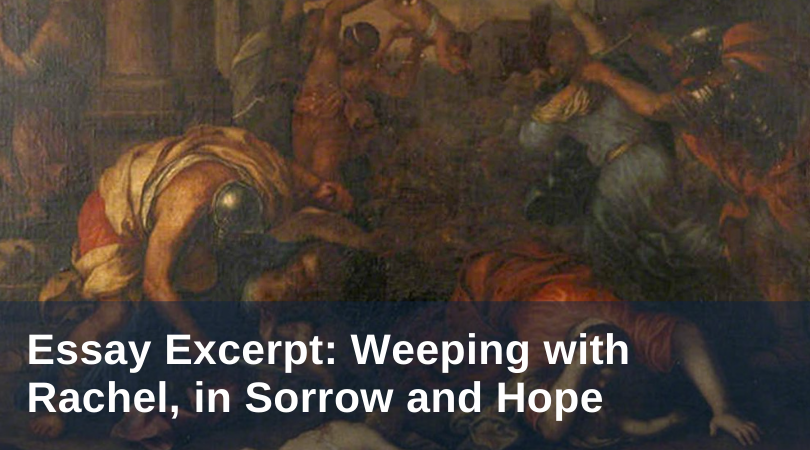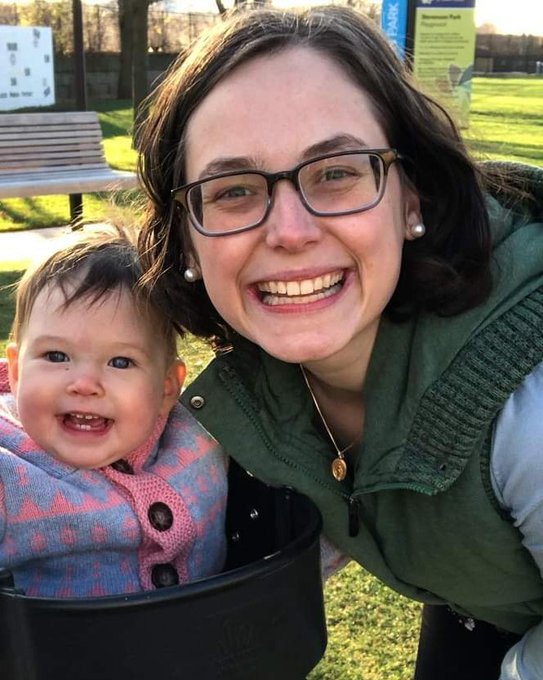
Editorial Note: This excerpt is taken from an essay by the same name originally published at Church Life Journal on December 28, 2016.
At Christmas, [the] love and the gravitational pull of my heart toward little ones seasonally intensifies. And every year, the fact that our Lord came to earth not as an adult but as a helpless, innocent, dependent little one who needed the arms of his mother Mary and his foster-father Joseph repeatedly stuns me.
But the Feast of the Holy Innocents is not warm and fuzzy.
This feast is not a day where we can blithely wonder what it would have been like to count the toes of baby Jesus and to kiss his head. The Church commemorates the Feast of the Holy Innocents, as it has been doing since at least the fifth century. The Gospel of Matthew helps us to remember that Joseph and Mary left a dire situation when they fled with Jesus toward Egypt:
When Herod realized that he had been deceived by the magi,
he became furious.
He ordered the massacre of all the boys in Bethlehem and its vicinity
two years old and under,
in accordance with the time he had ascertained from the magi.
Then was fulfilled what had been said through Jeremiah the prophet:A voice was heard in Ramah,
sobbing and loud lamentation;
Rachel weeping for her children,
and she would not be consoled,
since they were no more. (Matthew 2:16–18)
How can this day—a day when we remember the martyrdom of infant and toddler baby boys who died in Jesus’ stead because of Herod’s fear, wrath, and pride—fit in with the love of children, littleness, and humility that permeates the very foundations of our faith at Christmas? Why do we celebrate and remember a day when infant boys were massacred? We were reminded in the Office of Readings on Christmas of a sentiment that at first glance might not seem to fit with today:
Dearly beloved, today our Savior is born; let us rejoice.
Sadness should have no place on the birthday of life. (St. Leo)
Yet here we are, only a few days later, remembering the mothers who "wept with Rachel," and aching for the infants whose lives were cruelly snuffed out by Herod’s soldiers. How are we supposed to reconcile that brutal fact and painful reality with warm and fuzzy feelings of Christmas?
Put simply, we don’t.
St. Leo's sermon on Christmas did not end with telling us sadness should have no place in the Christian life ever because of the feast of Christmas. The next line continues the story:
The fear of death has been swallowed up;
life brings us joy with the promise of eternal happiness.
That is what makes the reality of the Holy Innocents livable. If we reduce Christmas to feelings of togetherness and cheerfulness, or if we disable the mystery of the Incarnation and cripple it to fit in our boxes of gift giving and kitchens full of holiday smells, it will become impossible to reconcile the deaths of the little ones with a good God in faith. Instead, if we remember that the Incarnation actually means that our Savior became flesh and came to dwell among us, and that he was born in order that he could die for us so that we could have the hope of eternal glory, the narrative shifts. It shifts from one that would despair at the death of the Holy Innocents to one that celebrates and remembers them, counting them as martyrs, knowing that they did not die in vain.
To read the full essay in our Church Life Journal, click the button below!
Featured image: Anonymous, The Massacre of the Innocents (17th c.); PD-OLD.



